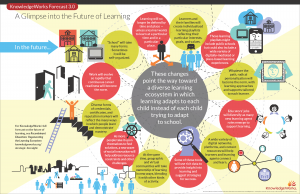Stop! Don’t opt out. Read this first.
The recently established Wrench in the Gears blog provides some critical perspective on the drive to digitally-focused personalized learning within the context of ESSA:
Schools in every state are buzzing this year with talk of “personalized” learning and 21st century assessments for kids as young as kindergarten. The Every Student Succeeds Act (ESSA) and its innovative pilot programs are already changing the ways schools instruct and assess, in ways that are clearly harmful to our kids. Ed-tech companies, chambers of commerce, ALEC, neoliberal foundations, telecommunications companies, and the government are working diligently to turn our public schools into lean, efficient laboratories of data-driven, digital learning.
In the near future, learning eco-systems of cyber education mixed with a smattering of community-based learning opportunities (ELOs) will “optimize” a child’s personal learning pathway to college and career readiness.
Opt out families are being set up as pawns in this fake “assessment reform” movement. I began to realize this a year ago when our dysfunctional, Broad Superintendent-led school district was suddenly almost eager to help us inform parents of their rights to opt out. It wasn’t until the ESSA passed, and I started learning more about competency-based education, out-of-school time learning, and workforce badging that the bigger picture came into focus.
Here’s how we were set up:
- The reformers created a disaster in the form of end-of-year, high-stakes tests knowing that parents, teachers, and students would push back.
- By tweaking the details of how the disaster played out, they were able to provoke specific responses that could be turned to their advantage later.
- After a pre-determined period of suffering, they offered us “solutions.” (see ESSA)
- While the proposals at first glance seem to address our concerns, in reality they justify a transition to a standards-driven, digital curriculum that will create comprehensive online databanks of our children’s academic and social-emotional strengths and weaknesses.
